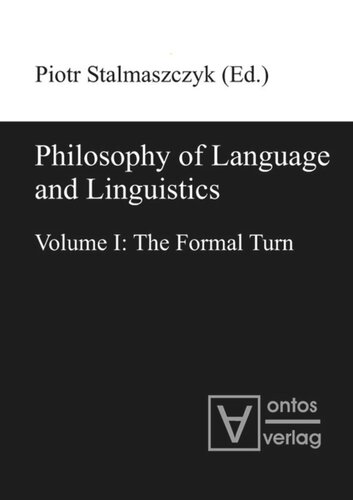

Most ebook files are in PDF format, so you can easily read them using various software such as Foxit Reader or directly on the Google Chrome browser.
Some ebook files are released by publishers in other formats such as .awz, .mobi, .epub, .fb2, etc. You may need to install specific software to read these formats on mobile/PC, such as Calibre.
Please read the tutorial at this link: https://ebookbell.com/faq
We offer FREE conversion to the popular formats you request; however, this may take some time. Therefore, right after payment, please email us, and we will try to provide the service as quickly as possible.
For some exceptional file formats or broken links (if any), please refrain from opening any disputes. Instead, email us first, and we will try to assist within a maximum of 6 hours.
EbookBell Team

5.0
78 reviewsPapers gathered in the two volumes investigate the complex relations between philosophy of language and linguistics, viewed as independent, but mutually influencing one another, disciplines. They concentrate on the ‘formal’ and ‘philosophical’ turns in the philosophy of language, initiated by Gottlob Frege, with further developments associated with the work of Bertrand Russell, Ludwig Wittgenstein, Kazimierz Ajdukiewicz, W.O.V. Quine, Richard Montague, Pavel Tichý, Richard Rorty. The volumes bring together contributions by philosophers, logicians and linguists, representing different theoretical orientations but united in outlining the common ground, necessary for further research in philosophy of language and linguistics. The papers were submitted and, in most cases, presented at the first International Conference on Philosophy of Language and Linguistics, PhiLang2009, organized by the Chair of English and General Linguistics at the University of Lódz.